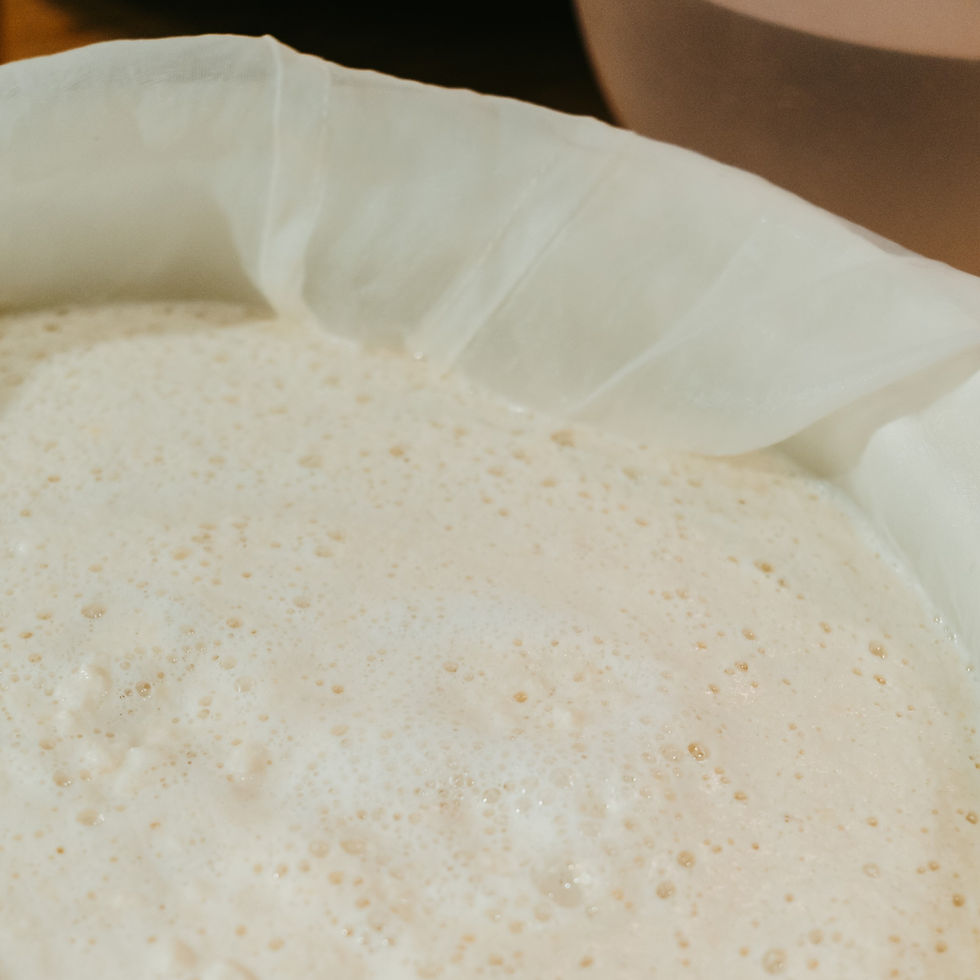A Tofu Story from Kagurazaka: Where the Earth Meets the Sea in Tokyo’s Hidden Culinary Quarter
- Shinya Yamada
- Jun 20, 2025
- 3 min read
Updated: Jun 21, 2025

Tofu in Every Season: The Humble Star of Japanese Home Cooking
I love tofu. Perhaps you do too? From silken hiyayakko on a hot summer day to the bubbling warmth of yudofu in winter, from miso soup to sukiyaki, from salad toppings to the bold center of a dish like mápò dòufu—tofu is quietly, humbly, everywhere in the Japanese kitchen.

Tofu in Zen: Sacred Nutrition in Monastic Life
Tofu has long been treasured not only for its taste but also its spiritual resonance. In Zen monasteries such as Eiheiji Temple in Fukui, the head temple of the Sōtō school, meat and fish are forbidden. Tofu and soy products become the monks' essential source of protein, and their cuisine, shōjinfu, elevates tofu to a sacred status.

For a Vegetarian, a Vegan, or Anyone Seeking Mindful Eating
This plant-based culinary tradition also makes tofu a perfect fit for today’s dietary preferences. Whether you're a vegetarian, a vegan, or simply someone exploring mindful eating, this tofu-making experience welcomes all with ingredients that are natural, nourishing, and entirely free of animal products.

Earth, Sea, and the Alchemy of Tofu
What is tofu made of? Just three ingredients: soybeans from the earth, nigari from the sea, and water. That’s all. And yet, when these pure elements come together in careful balance, they become something astonishing: soft yet structured, simple yet profound.
You may be familiar with soybeans, but nigari remains more mysterious. The Japanese word nigari is written with characters that literally mean “bitter juice,” and it lives up to its name—with a sharp, briny taste that lingers on the tongue. This mineral-rich liquid is what remains after salt is extracted from seawater. High in magnesium, nigari acts as a natural coagulant: when stirred into warm soy milk, it causes the proteins to gently bind into soft, silken curds. That moment of transformation—from cloudy liquid to quivering white tofu—feels almost alchemical.
And here’s a detail many find astonishing: nigari doesn’t spoil. This essence of the ocean, which plays a supporting role in miso, pickles, and soy sauce as well, can be stored for decades. A timeless ingredient for a timeless food.

Make Your Own Tofu in Tokyo: A Hands-On Journey in Kagurazaka’s Hidden Workshop
But few people, even in Japan, have truly experienced tofu at its source—with their own hands. In the backstreets of Tokyo’s refined Kagurazaka district, there is a class where you can do just that: make your own exquisite tofu under the guidance of a true master.

In our tofu-making class in Kagurazaka, you’ll be guided by "Kai," a tofu meister from the renowned shop Katsuno Tofu. You’ll begin with grinding the beans, move through the heating and straining process, and finally add the nigari yourself—watching, breath held, as your tofu takes form. Everyone who joins this experience says the same thing afterwards: "I’ve never tasted tofu like this before." Soft yet resilient, fresh and fragrant—it’s an entirely different food from the packaged varieties in supermarkets.
Whether you’re a vegetarian, a curious cook, or a cultural explorer, this class offers a quiet moment of creation, rooted in both land and sea. Come shape a block of tofu with your own hands, and taste a piece of Japan’s culinary soul.

Make Your Own Tofu Story—A Hands-On Journey Through Japan’s Culinary Soul
Your place is ready in the little workshop behind the shop—where the earth and ocean meet, and where you’ll make your own tofu story, discovering that something so simple can still taste like a revelation.

Book Each Experience
How to Access Kagurazaka
The Kagurazaka area is conveniently located within 30 minutes from any major station in Tokyo. This is because Kagurazaka is situated in the heart of Tokyo, at the center of the Yamanote Line. Please come and visit this convenient and charming Kagurazaka.








Comments